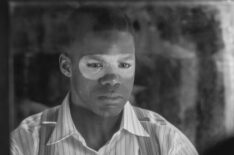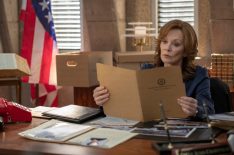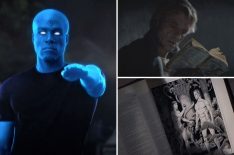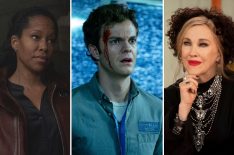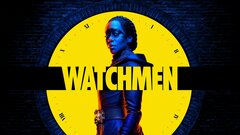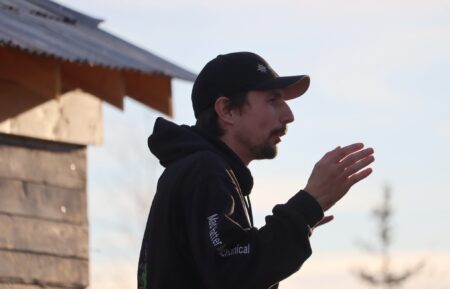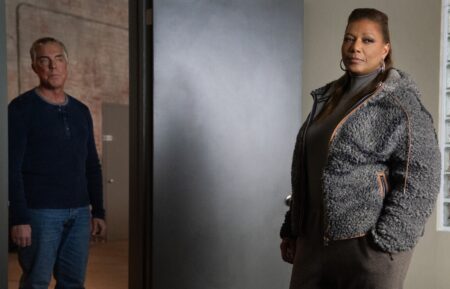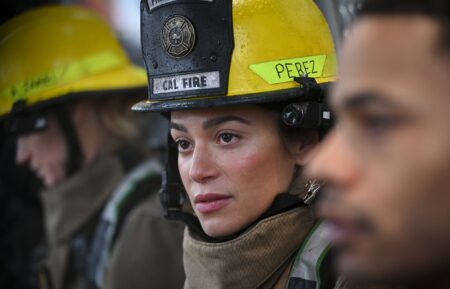‘Watchmen’s Tim Blake Nelson on Season 2 Hopes & Looking Glass’ Rorschach Connection
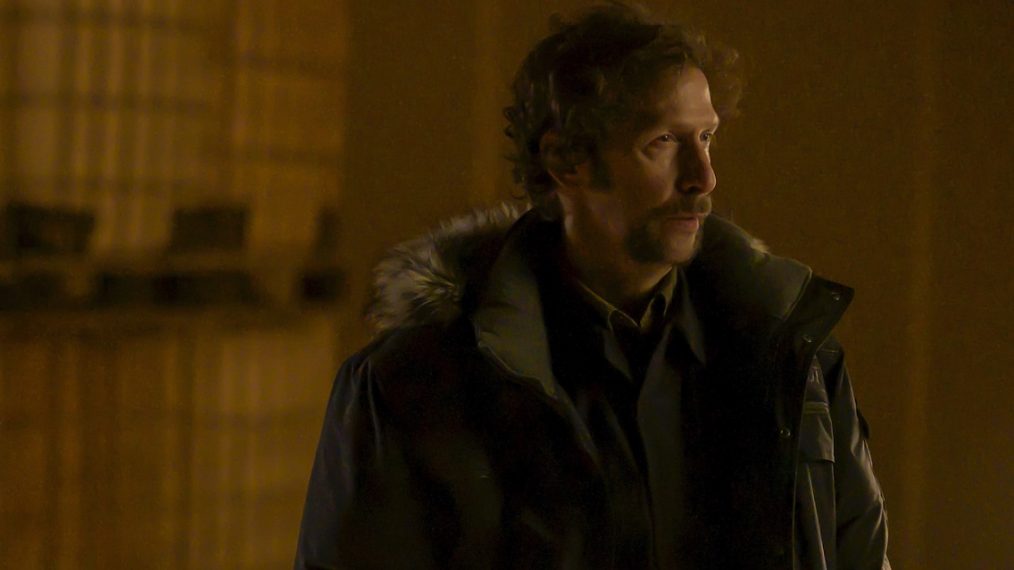
Spoiler Alert
[Warning: This article contains MAJOR spoilers for the season finale of Watchmen, “See How They Fly.”]
Almost all was answered in the Watchmen Season 1 finale, but a few questions linger long after the icy squid rain has ceased — one of which is the next move for Tim Blake Nelson‘s compelling character Wade Tillman, otherwise known as Detective Looking Glass.
As the finale nears its end, Looking Glass, along with Laurie (Jean Smart), takes custody of the otherwise elusive Adrian Veidt (Jeremy Irons). While some questions may never be answered, Nelson does open up about how that wild finale came together, what this role has meant to him and whether he thinks there’s more to Looking Glass’ story.
You’ve been nominated for a Critics’ Choice Award — what makes a nomination for this particular role so special?
Tim Blake Nelson: I loved this role on the page when I read the pilot, and once Damon [Lindelof] assured me that Looking Glass was gonna have some very interesting evolution over the season, it simply became irresistible. And what I did is simply to try and do diligent careful work with that raw material that was given to me by that excellent writing staff and Damon himself and embody what it was they were asking for. So really, much of the nomination belongs to Damon and the writers. I just tried to fill out a character for whom they gave me great raw material.
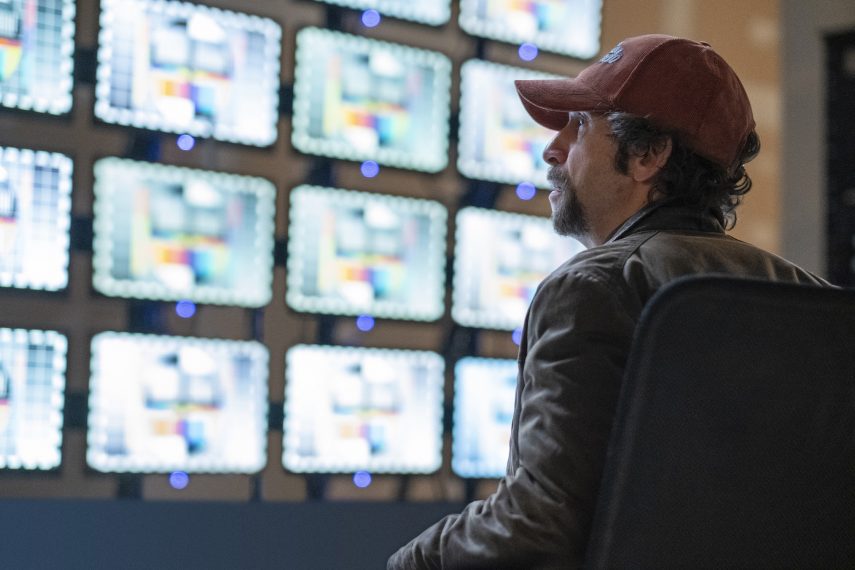
(Credit: HBO)
Looking Glass retrieved the disc with Adrian’s confession. Is that his driving force for survival in this episode?
I think what causes him to survive is his shrewd mistrust of others that goes back to the incident in 1985, meaning that once he’s released by the Seventh Kavalry, he certainly doesn’t consider that the end of it. Because, of course, why would they want to allow him to remain alive after he’s delivered Angela Abar to them? I think he fully expects that they’re gonna come after him, and I think when he goes and retrieves the alarm system I always figured he rejiggered it so that it would alert him of anyone entering his premises. And so he knows the Seven K has arrived and he’s ready for them when he gets into the bunker.
I think he survives to survive and saves himself because he doesn’t trust other people. Once he has dispatched with the assassins that have come to kill him, then his first order of business is to get a hold of that disc so that he can expose that hoax to millions like him who’ve suffered trauma as a result of 11/2/1985.
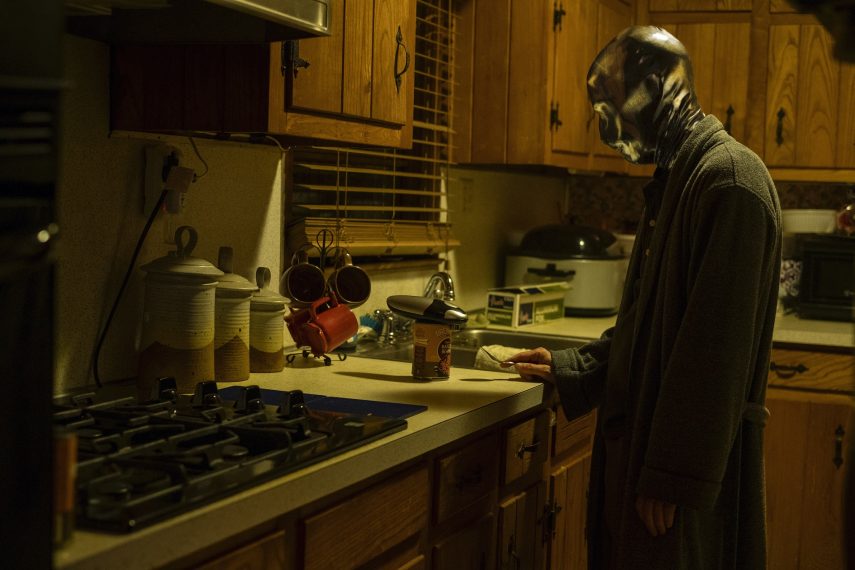
(Credit: HBO)
We see Wade trade his Looking Glass mask for one of the Seven K’s Rorschachs, and throughout the season there’s similarities between your role and the comic character’s. Was it an unspoken fact that Wade was going to be the show’s loose version of Rorschach?
In Episode 2 when he’s eating the beans in front of [American Hero Story], you understand that there’s an allusion to Rorschach in that. It also struck me as soon as I saw the mask that there were Rorschach-esque aspects to it. And I think that in a sense he’s a bit of a spiritual Rorschach because those who look into his face see an image of themselves, and that means everyone has their particular response to the information inside of his mask and that’s very much like a Rorschach.
Yes, and also like Rorschach, Looking Glass wants to bring Adrian to justice. And it looks as though he’ll succeed, but do you think there’s more to Wade’s story and the show? Would you sign on for a second season if HBO were to order one?
I certainly would love to do a second season, but ultimately that’s gonna be up to HBO and Damon. And should there not be a second season? It’s not at all going to diminish the thrill of doing one season.
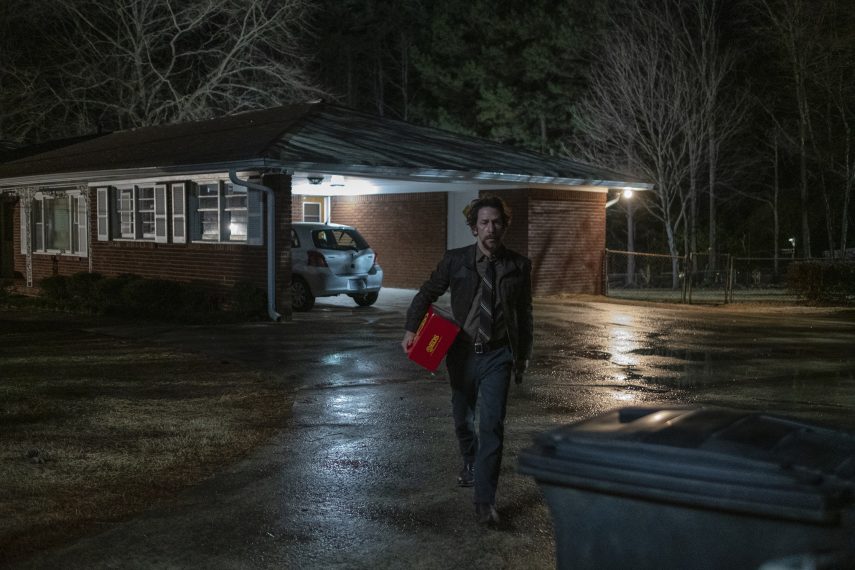
(Credit: HBO)
Your character’s banter throughout the season with Jean Smart has been so much fun, and Jeremy Irons joined the mix in this episode. Is it fun getting to show that less subdued side of Wade?
You’re often only as good as your scene partners, and getting to work not only opposite the incredible characters of Adrian Veidt and Laurie Blake, not to mention Angela Abar, but also with the amazing Jeremy Irons and Jean Smart, made playing the extraordinary writing all the more satisfying. I felt like I was out there on the field in an all-star game and suddenly they let me get involved with that.
I loved it, and in terms of the natural reticence of the Looking Glass character, I’ve enjoyed his laconic nature and the restraint and the deep intelligence of the man because often I’m playing characters that are very loud and not that smart as opposed to characters [like this].
Your character doesn’t take too well to teleportation. Was it rough shooting scenes where you have to feign illness?
That was really funny, I loved that touch. A lot more than twice, because one of them is a fairly tight shot and they wanted to get it right. But, ultimately you appreciate a director and a director of photography’s meticulousness and so it’s not so bad, and you know there are greater problems out there in the world that people suffer than having to be an actor spitting soup out of your mouth. And I also thought it was funny.
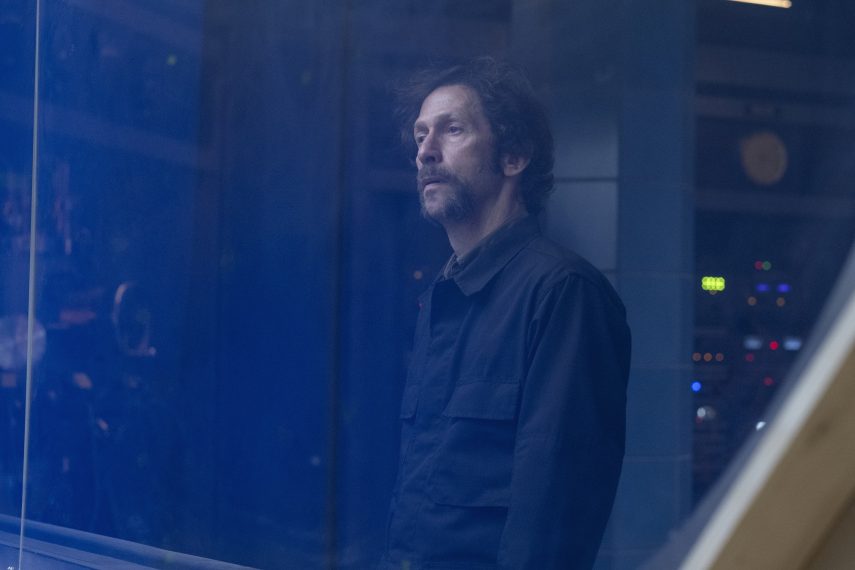
(Credit: HBO)
And the biggest question of the finale has to be whether Angela actually transformed or not. Where do you stand when it comes to her being able to walk on water? Does it happen or no?
All I’ll say is that to me, great narrative always does three things at once. It coheres, it surprises, and in the end it seems to have been inevitable. And I think that’s what Damon achieved in the final episode, and as to whether she can walk on water at the end? Only Damon knows.
Watchmen, Season 1, On Demand, HBO Go and HBO Now

